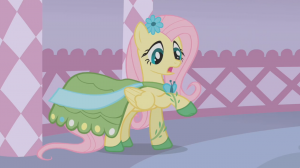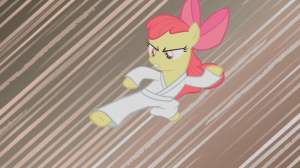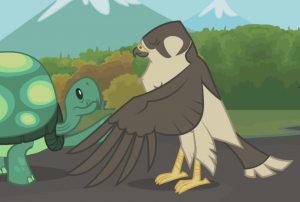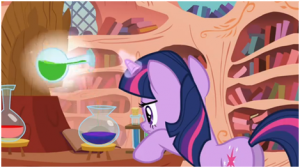Reading Chinua Achebe Part 3: UC Irvine
Click to read:
Part 1: High School
Part 2: Community College
At UCI some of the writers were easy to spot early on. If someone was helpless in the literature class, they were probably a writer. Sometimes they would defunct a reading by saying “That’s not what writers do,” instead of, you know, something not stupid. They had trouble with the type of thought required for literary criticism/critical theory. They were developed to think more from an angle of aesthetic criticism. In community college, critical theory and aesthetic theory seemed to go hand in hand. I didn’t realize that they had any difference or that there was a time and a place for each. I’ll discuss this more in the future.
In this quarter I was just starting to learn to separate my two parts of theories of literature. This should have been easy. I was an argumentative Muslim-agnostic living in a Christian country in a very divisive period. I also had the luxury of being able to pass for Middle Eastern, Hispanic, and/or Caucasian (Yes, even with a name like Sharif. *shrug* People are dumb?). When people were arguing about the benefits of locking Muslims up for no reason, then I couldn’t argue like an Arab (I’d sound biased). I’d have to argue like a white Republican American Christian. I’d point out contradictions of their arguments with the beliefs they testify to like a combination of Ditto and Pheonix Wright. The way most people code switch from the way they speak at home to the business casual vernacular they speak at work, I could code switch between ethos. Like Super Nintendo cartridges. Off. Pop. Blow. Swap. On. Let’s play.

“‘Lock up all the Muslims?’ Where’s that Christian-American ethos cartridge? *blow* I think at a point we need to trust God to protect us. If we commit sins against the innocent due to our fear, then it shows a lack of faith in Christ. In addition, I believe that the terrorists can only destroy our buildings, but the American spirit of freedom can only be destroyed by jingoism and fear stirred up in ourselves. How can you talk about protecting freedom while talking about incarcerating the innocent? How can you be American, but advocate religious persecution? We must walk the careful line between vigilance and oppression. Of course, whatever you believe is fine, because this is America.” -Bush Administration Sharif
However, separating literary criticism from aesthetic criticism was like separating the water from Kool Aid. Especially when you don’t know that there is a such thing as aesthetic theory. It was mostly just “How do I reconcile what this person says about literature with what this person says.” For survival purposes this required a bit of Schizophrenia. Think this way on Mondays and Wednesdays; think another way Tuesdays and Thursdays. This process took me years of confusion, internal rhetoric, fights with professors, fights with grad students, looking like a jackass, fear, anger, hate, and suffering.
I read Things Fall Apart twice this quarter. The first time I read it was to refresh the story in my mind for class discussion, the second time was to write an essay.
In retrospect I realized that the first time I read it at UCI, I read it very much from a critical theory standpoint. The Igbo culture was a microcosm of the greater struggle of Africa being caught between cultures (though perhaps too obvious, general, possibly not true, and worst of all not enough to make a paper on).
When it was essay writing time, I reread and started hunting for quotes and such. This time, for some reason, I was looking more at the aesthetics and techniques of the book. The language was new for me. I guess this was the first time I really looked at the prose. It was clear and direct, simple yet elegant. There was no pretension trying to wax as wisdom. It was just wise. Direct, effective, adaptive, and powerful like Bruce Lee’s approach to martial arts, but with words. Things Fall Apart is a book as much to be experienced as it is to be read, analyzed, and understood. The language doesn’t have to create a faux complexity and play a game of “hide the secret;” the complexity comes from the honesty, empathy, and understanding from the author.

“The best form is to have no form. Unless it is poetry, then the best form is the villanelle.” -Bruce Lee (not really)
I noticed the use of folklore, which was a minor theme throughout other works we were studying. So I wrote an essay on that. I said how the story of the tortoise and the birds was a microcosm of the greater novel. I further went on to point out how folklore and a character’s relationship to it was used for characterization and to set up various plot points and relationships including relationships with one’s culture.

“Let me have some feathers so I can go to the bird feast in the sky. Seriously quit being a dick.” – Things Fall Apart (not really)
I was super excited for this essay, which is a bad sign I’ve learned. I have a passion for aesthetic theory, which means that it isn’t something I should turn into the critical theorist TA.
I remember right before the essay was due, many of my classmates were at a complete loss of what to write about since there were no prompts. So I started handing prompts out on subjects I saw but wasn’t passionate about. Write about the effects of colonialism on women as described by Wole Soyinka in “The Lion and The Jewel” and Mirama Ba’s So Long a Letter. Use Ngũgĩ wa Thiong’o’s Weep Not Child and Tsitsi Dangarembga’s Nervous Conditions to talk about the role of Western education in African self-awareness (Helpful hint, bring in the teacher’s book Decolonizing The Mind).
These prompts were very literary critc-y. Everyone who took one of my prompts got an A or an A-. I got a B- on my paper! Apparently, an ethnocentric feminist gaze of African polygamy had more legitimacy than discussing the use of African culture to show the greater book as a macrocosm of a piece of folklore.* Although, it might have helped streamline my paper if I actually knew the words “microcosm” and “macrocosm” when I was 21.
Speaking of folklore, I think I’ll end this in an Aesop. I was the same human being reading the exact same copy of a book, yet I wasn’t the same person. My worldview had shifted and so did my view of the world created by Achebe. If you’re a writer trying to control exactly how people read your book, you are fooling yourself and wasting your time. People will experience their own book, movie, comic, play, poem…
*It also might have helped to have incorporated Keat’s concept of the gyre, which today I still don’t quite understand. It’s like a self-referential vortex…kinda? I’m starting to remember why I didn’t try to put that in the essay.
2 Comments
Trackbacks/Pingbacks
- Reading Chinua Achebe Part 2: Community College | Writing Is Magic - [...] (Click for part 3) [...]


This is how I feel about, To Kill A Mocking Bird. I have read and reread that book so many times since I was ten years old. My first memory of it was reading it to help my sister do an extra credit book report when she was in sixth grade and I in fifth. I was like scout,and remember writing that report about Scouts relationship with Dill and a child’s need to be adventurous. Later in life I felt like Atticus, and Calpurnia or some other character Every time I experienced this novel at a older age’ I changed my views on life. It’s even weird to say, but at one point, I think I focused alot on Boo Radley.
I don’t remember that book very well, but from what I remember, I can definitely see that.